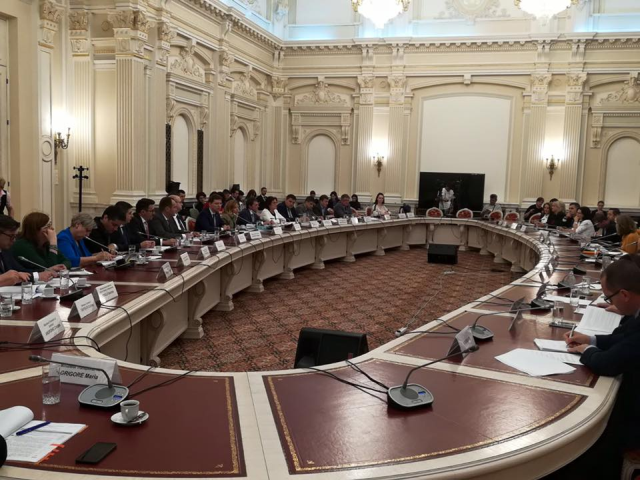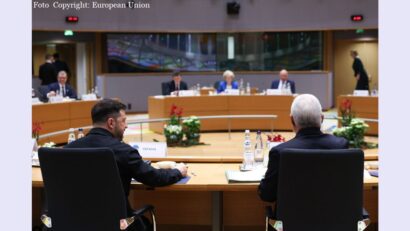Themes on the agenda of Romania’s EU Council Presidency
Minister Delegate for European Affairs, Victor Negrescu, has presented Parliament with the first version of a list containing the main themes of Romanias EU Council presidency in the first half of 2019

Bogdan Matei, 17.05.2018, 14:09
Having joined the EU in 2007, Romania will take over, for the first time, the rotating presidency of the EU Council in the first half of 2019. Minister Delegate for European Affairs, Victor Negrescu on Wednesday presented MPs on the expert committees with the first draft list of topical issues during Romania’s presidency. Minister Negrescu mentioned, as main coordinates, what he defined as a Europe of convergence, of security, a Europe as global player and a Europe of common values. The first concept, Europe of convergence, is made up of a number of subthemes, such as sustainable development, bridging the gaps in development, employment, social rights, innovation, digitalization, connectivity and competitiveness.
The chapter titled Europe of security includes the Union’s internal security, external borders management, the functioning of the Schengen area, current challenges and cyber security. The third pillar of the Romanian presidency, Europe, a global player, includes joint security and defense policies, the effectiveness of the EU’s foreign policy, the consistency of the EU policy in its vicinity and observance of international commitments. The fourth theme, which experts say it is also the most debated on in public consultations, is Europe of common values. Its subthemes are solidarity, cohesion, equal opportunities, social justice, democracy, respect for human dignity and freedom, fighting racism, intolerance, xenophobia, populism and anti-Semitism.
The document has been submitted for approval and will be presented, next month, in Parliament’s plenary sitting, by PM Viorica Dancila. Minister Negrescu has insisted that the final version of the document needs national consensus.
Victor Negrescu: “This document is the result of a series of public consultations held during an entire year, through which we’ve been trying to mobilize both the representatives of Romania’s Parliament and all governments, alongside representatives of the presidential administration and of civil society. We do need to reach consensus, both national and political, in order to succeed in speaking in one voice with respect to the representation of our interests in the run up to the Romanian EU Council Presidency. Our role will also be that of a mediator, so it is important for us to develop this capacity to listen and interact.”
The media is rather reserved when it comes to the capacity of the Romanian politicians to act in a unified and coherent manner during the Romanian EU Council Presidency. According to analysts, the increasingly complicated cohabitation between the right-of-center President and the leftist Government has affected lately the country’s foreign policy, as Bucharest no longer speaks with one voice on such matters.






























